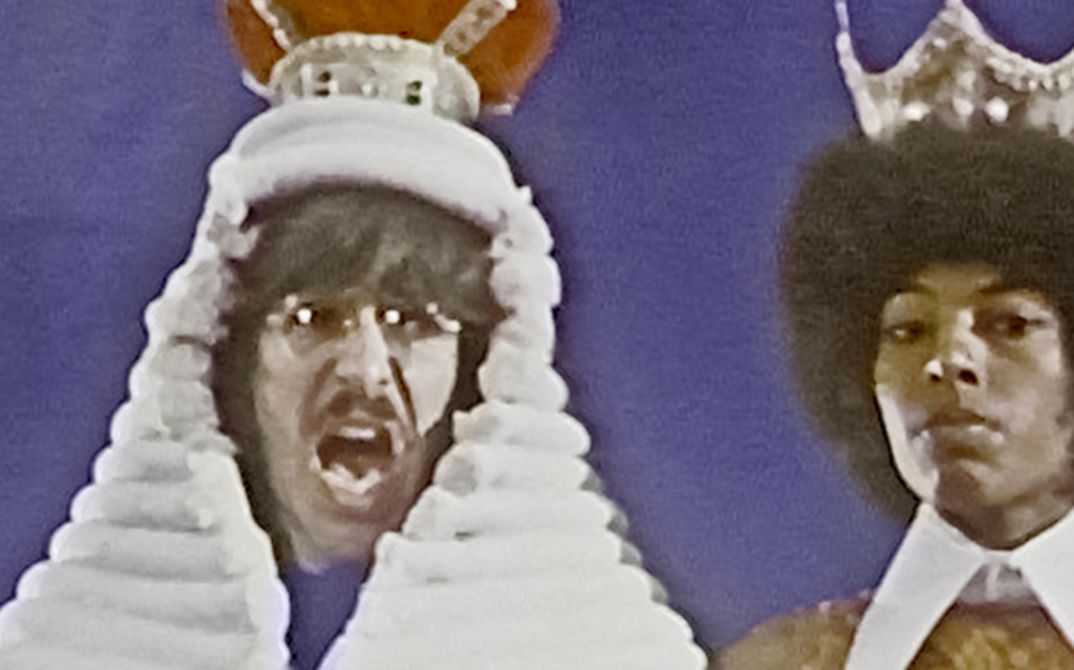A cinematic adaptation
A cinematic adaptation of the theatre production of the Toronto Workshop under George Luscombe.
It is a crime against the United States to cross or send a message across a state border with the intent of inciting a riot. In Chicago, eight protesters were brought to trial on charges of conspiring to incite a riot.
Nicholas von Hoffman writes: “The mere fact of the charge against the Chicago ‘conspirators’ creates the possibility that anyone who publicly expresses his support for or unease about something – be it rat control, peace, clean water or better police protection – can expect not only to have his skull smashed in by a police officer, but also to be put on trial for having conspired to provoke the police officer to do so. This could keep people from exercising their right to freedom of expression, and it’s one of the reasons – apart from all legal considerations – why many people, even though they are irritated by the personalities of the accused, by the foolishness and politics of the court, still stand up for them.”
What really happened in the Chicago conspiracy trial – the events and the witness testimonies – is not widely known. THE GREAT CHICAGO CONSPIRACY CIRCUS was conceived as a film and a play to bring the truth about this trial to the people.
(Information from the production company, back-translation, Infoblatt No. 30, 1. Internationales Forum des jungen Films, Berlin 1971)
A surrealistic courtroom
The film THE GREAT CHICAGO CONSPIRACY CIRCUS began when a group of actors from a repertory theatre, who were friends, decided to stage a play about the trial being held in Chicago against Abbie Hoffman, Jerry Rubin and others. When they read the court records of the trial, they realised that the Chicago trial was a theatre event in its own right, shaped not only by Rubin and Hoffman with their ideas of apocalyptic theatre, but also by Judge Hoffman with the support of the public prosecutor, and that the words spoken at the trial engendered at once a comedy and a tragedy. I shot the film together with my friends from the theatre. CHICAGO was also produced as a play.
We decided to splice the trial scene from ALICE IN WONDERLAND into the real courtroom scenes when it became clear that the two trials were equally insane.
We also decided to let the scenes play out in a surrealistic historical space and to give the real words of a real trial a certain dramatic emphasis, in order to make the event appear simultaneously surreal and extremely real through a process of alienation.
THE GREAT CHICAGO CONSPIRACY CIRCUS is essentially an account of what happened during the trial. It was consciously made not as a “cinematic” film, but as a film that shows what happened in the courtroom as simply and directly as possible. It is bizarre, funny, and sad, but that’s how it was at the trial. Every word spoken in the film’s courtroom was also spoken in the real courtroom. The film is a document, but also a storm warning.
(Kerry Feltham, Infoblatt No. 30, 1. Internationales Forum des jungen Films, Berlin 1971)
The American justice system draws its own caricature
(...) Judge Hoffmann, who in the so-called “Chicago Conspiracy Trial” of 1970 decreed outrageous administrative fines against defiant Yippies [members of the Youth International Party, an antiauthoritarian anarchistic youth movement in the USA] and Black Panthers, and whose violation of fundamental rights turned the trial into a farce, has already entered the annals of judicial history.
The Canadian Kerry Feltham ensured that Hoffman may also enter the annals film history, namely as co-scriptwriter: Feltham’s film, THE GREAT CHICAGO CONSPIRACY CIRCUS, is based on authentic court transcripts, which offer a record of Hoffman’s involuntary punch lines.
A group of young actors, constantly changing roles, re-enact the phases of the trial as if they were circus acts; the final shot is of a face whose mouth is being gagged by an American flag. The film is highly explosive, more than mere black cabaret: in it, the American justice system draws its own caricature.
(Helmut Kotschenreuter, Abendzeitung, 5 July 1971. Forum press review 1971)
